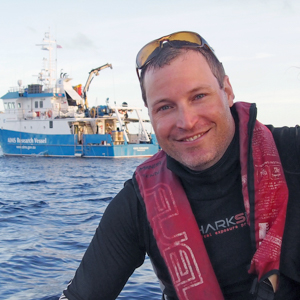Dr Neal Cantin's research focuses on the combination of historical records of coral calcification from long-lived massive corals and experimental aquarium-based studies to better understand the response of coral physiology and calcification to past, present and future environmental stressors, particularly thermal stress and ocean acidification. He has spent the past several years observing and understanding the impacts of coral bleaching throughout the Great Barrier Reef.
Since 2016, Dr Cantin has been Principal Investigator for the Great Barrier Reef Coral Bleaching Response, in partnership with the Great Barrier Reef Marine Park Authority.
Coral, Climate Change, Marine Ecology, Coral Reef Ecology, Scientific Diving, Ecosystem Ecology, Underwater Photography.

